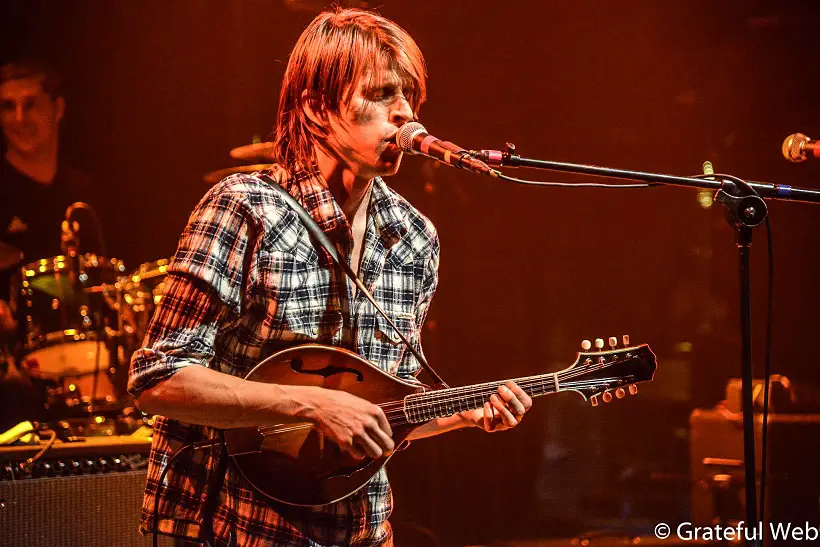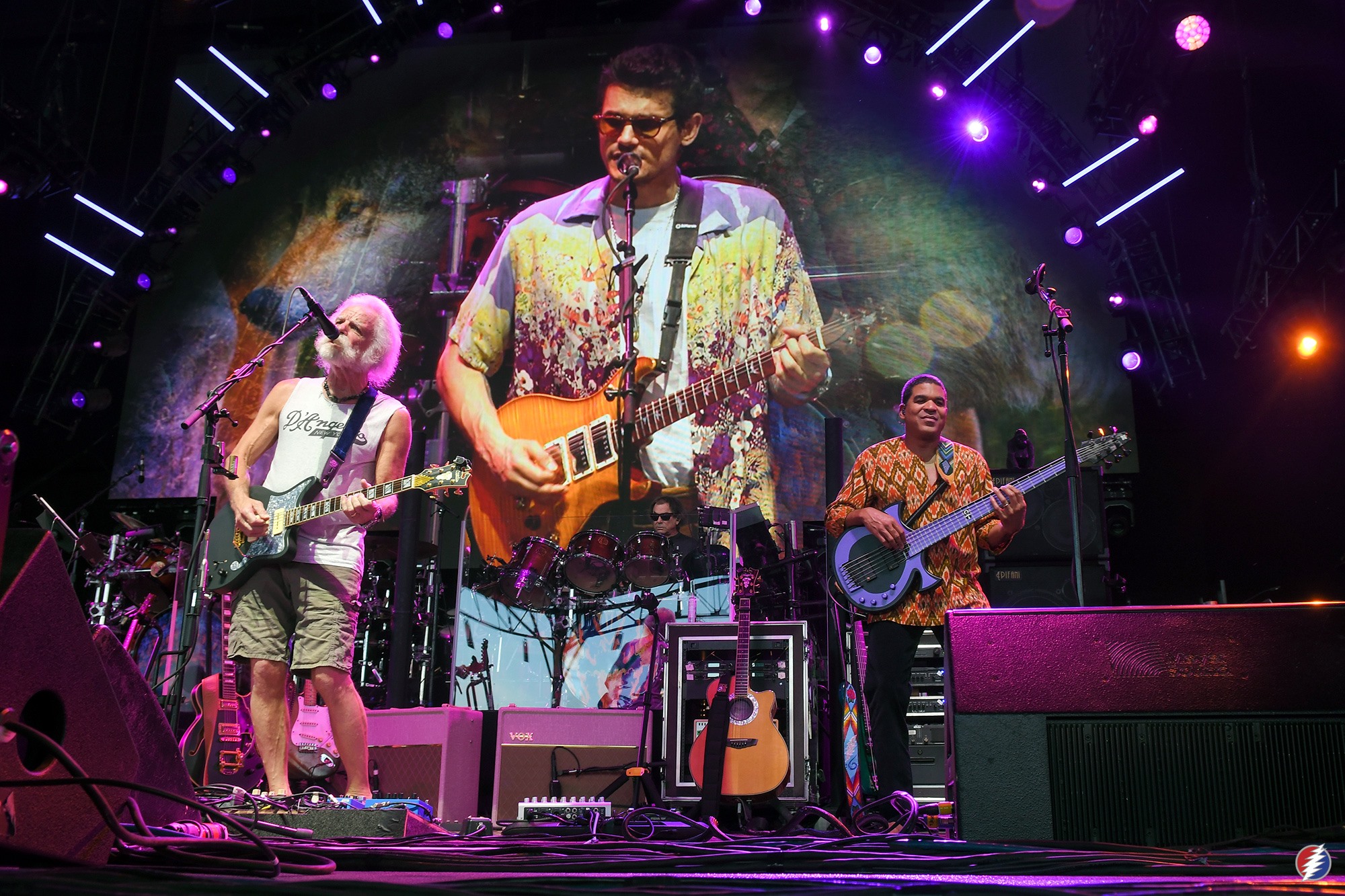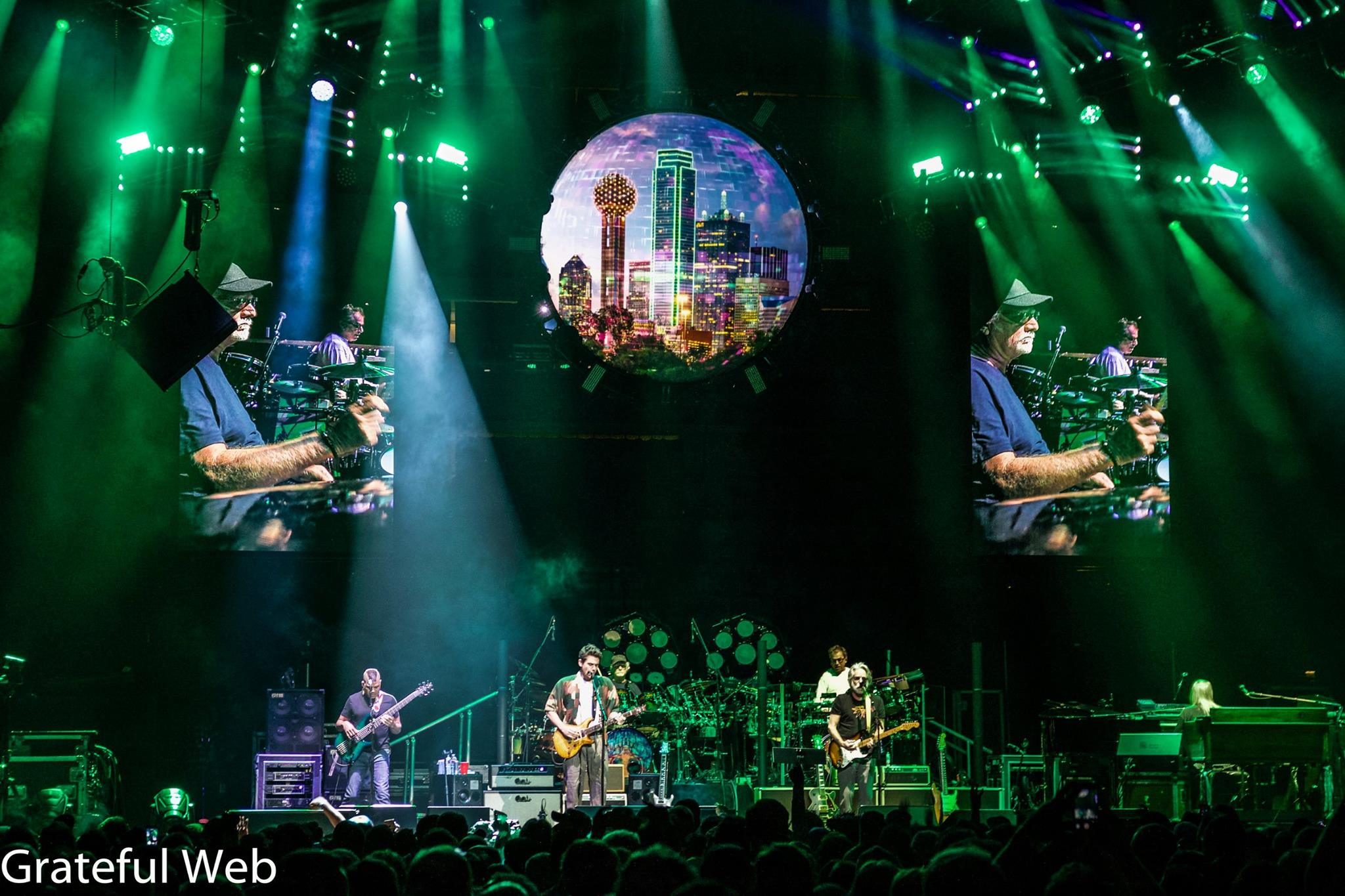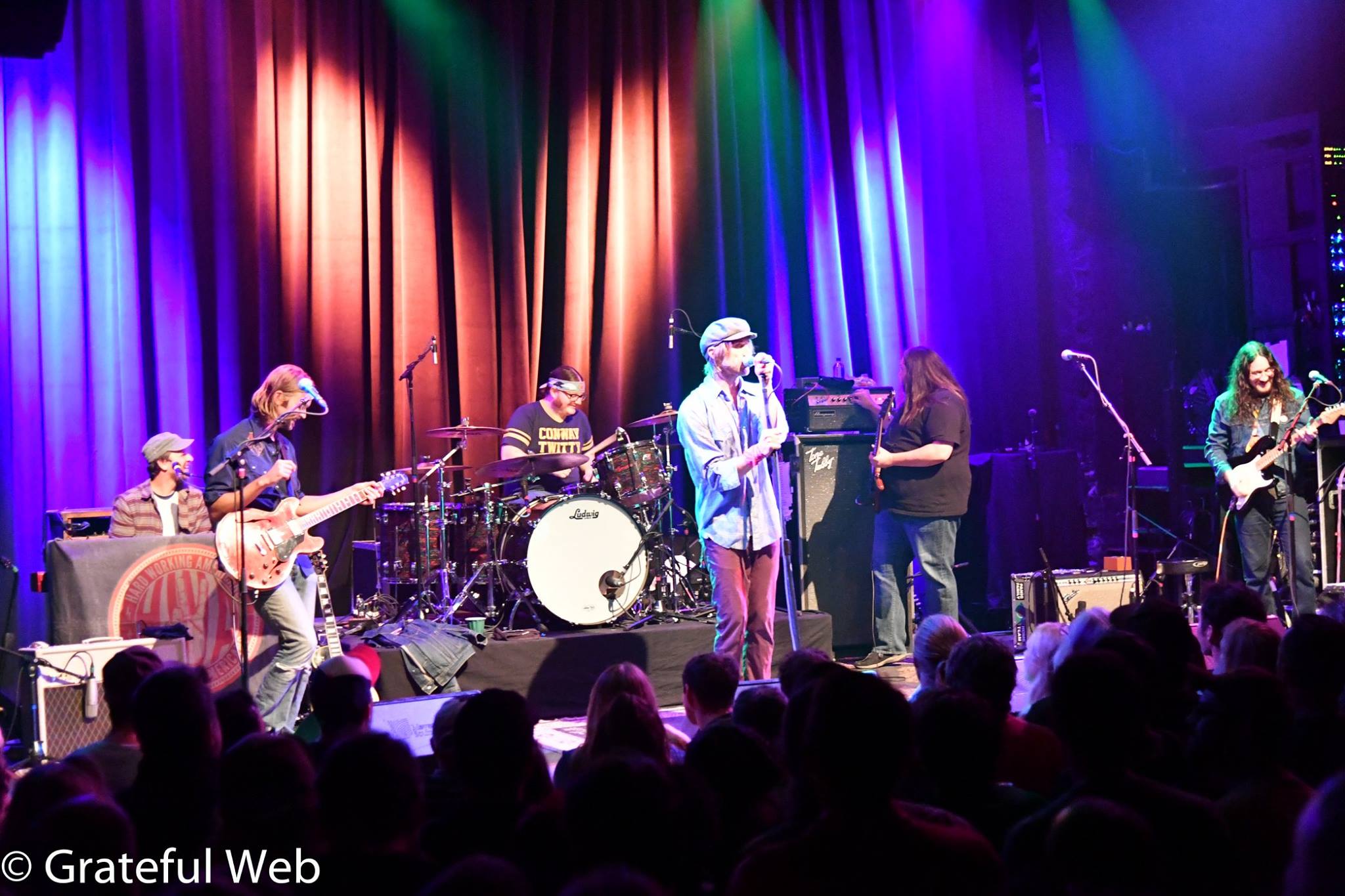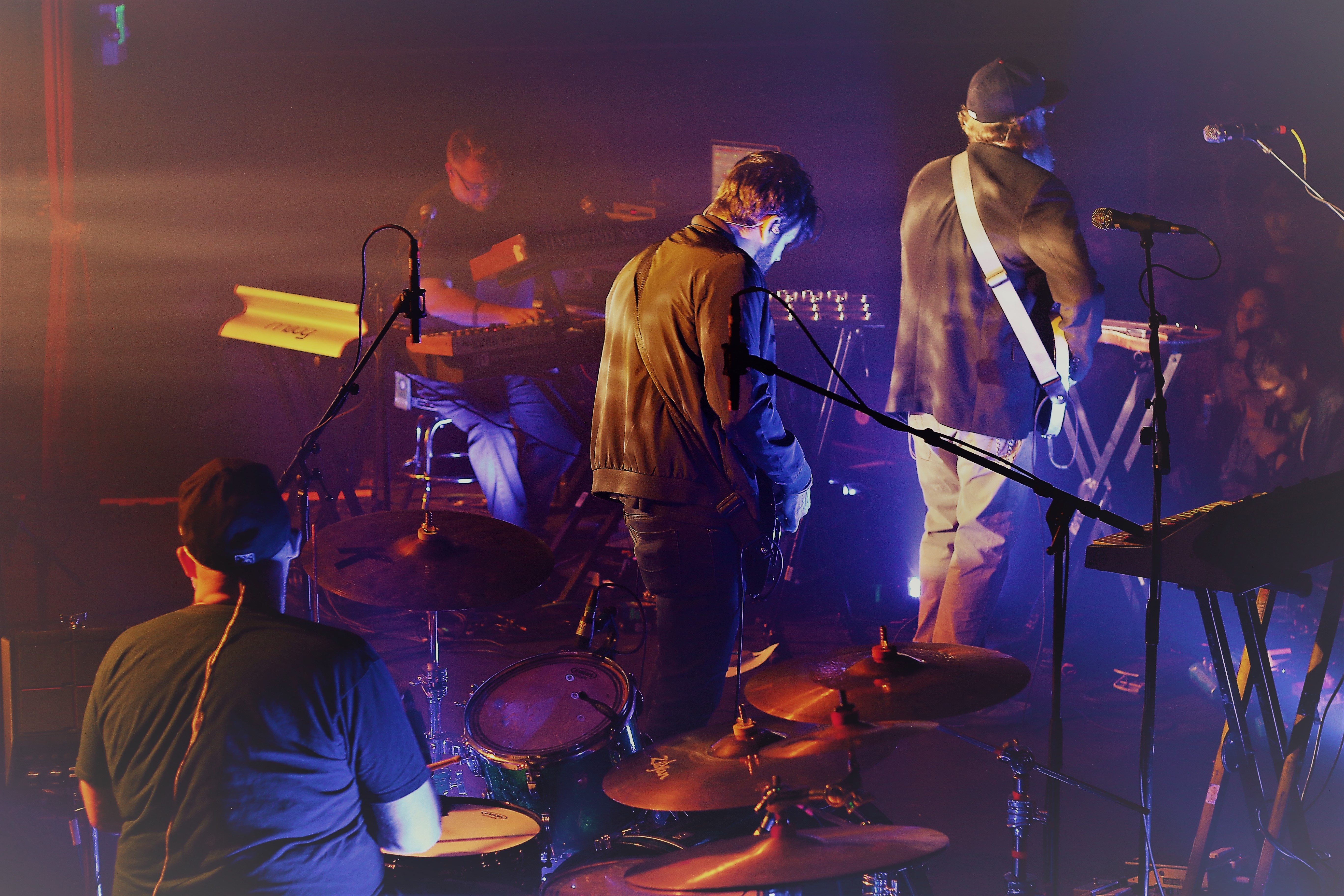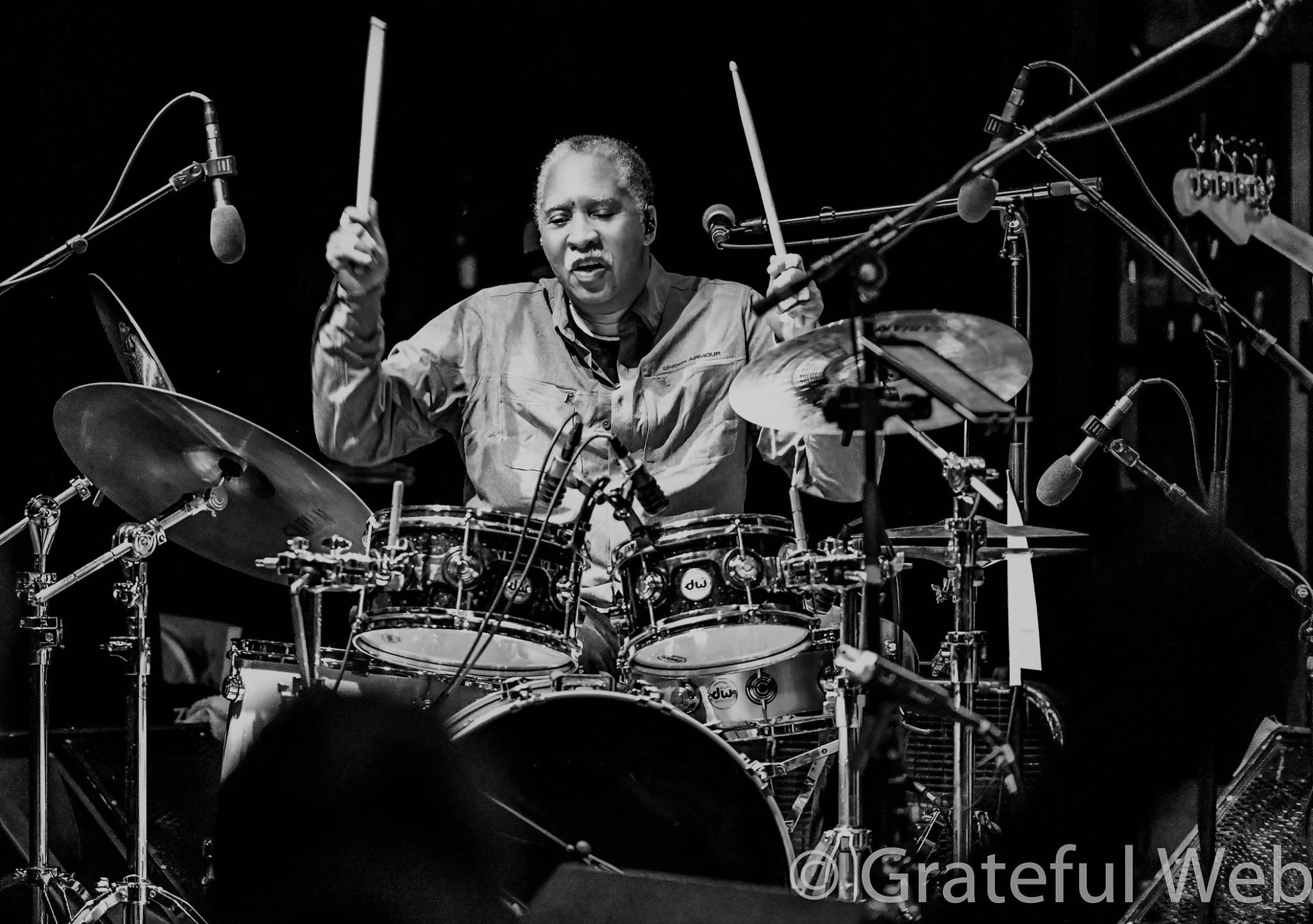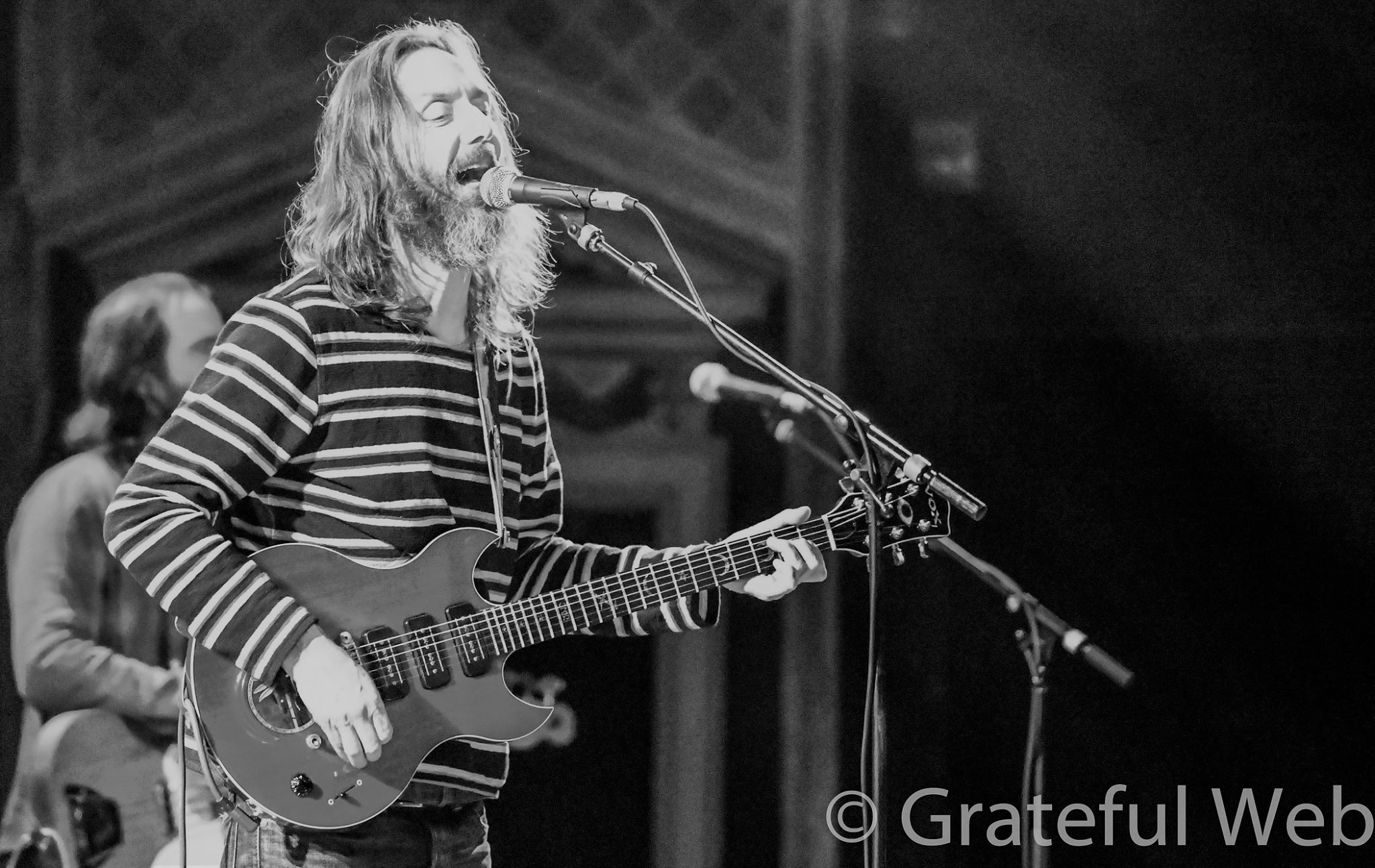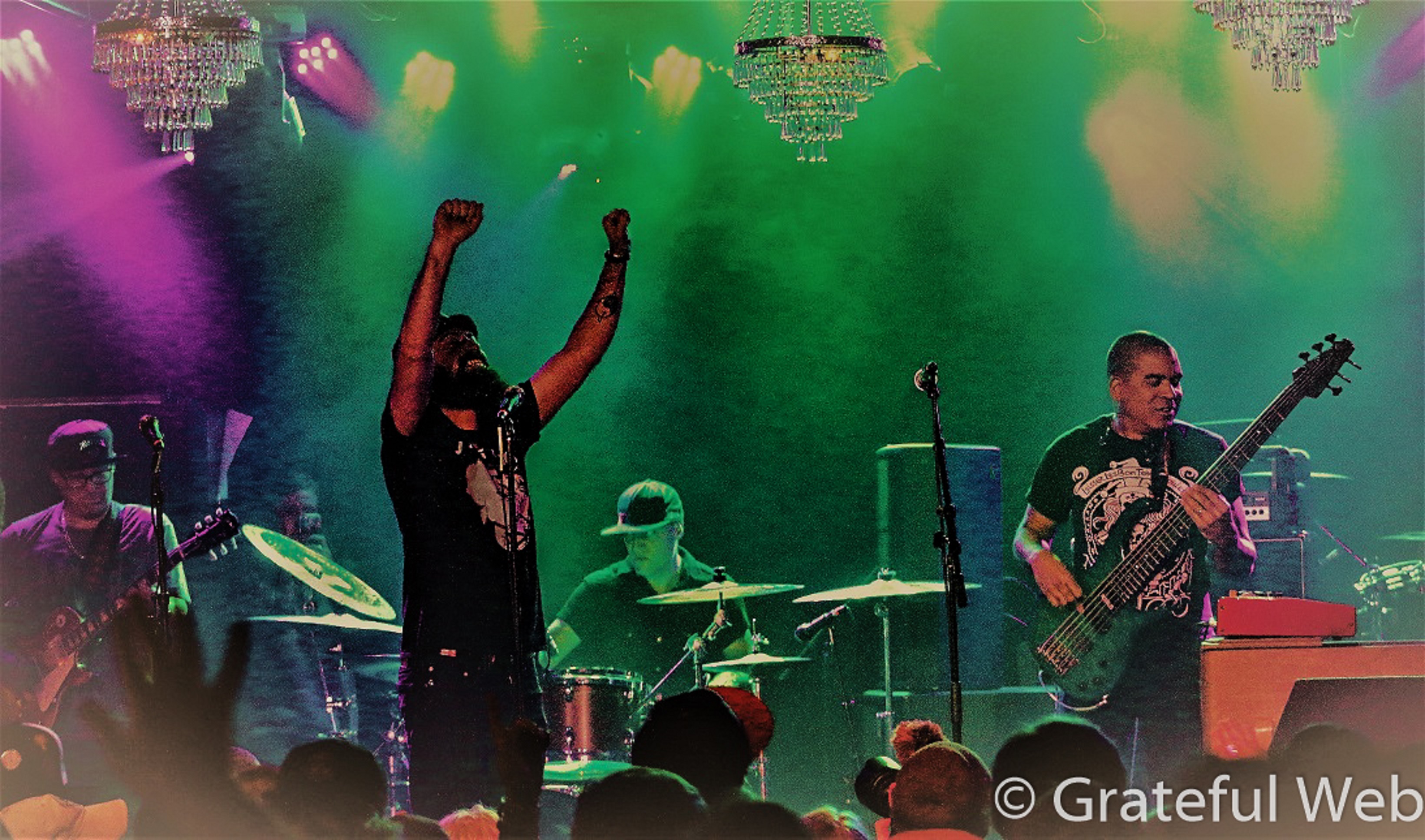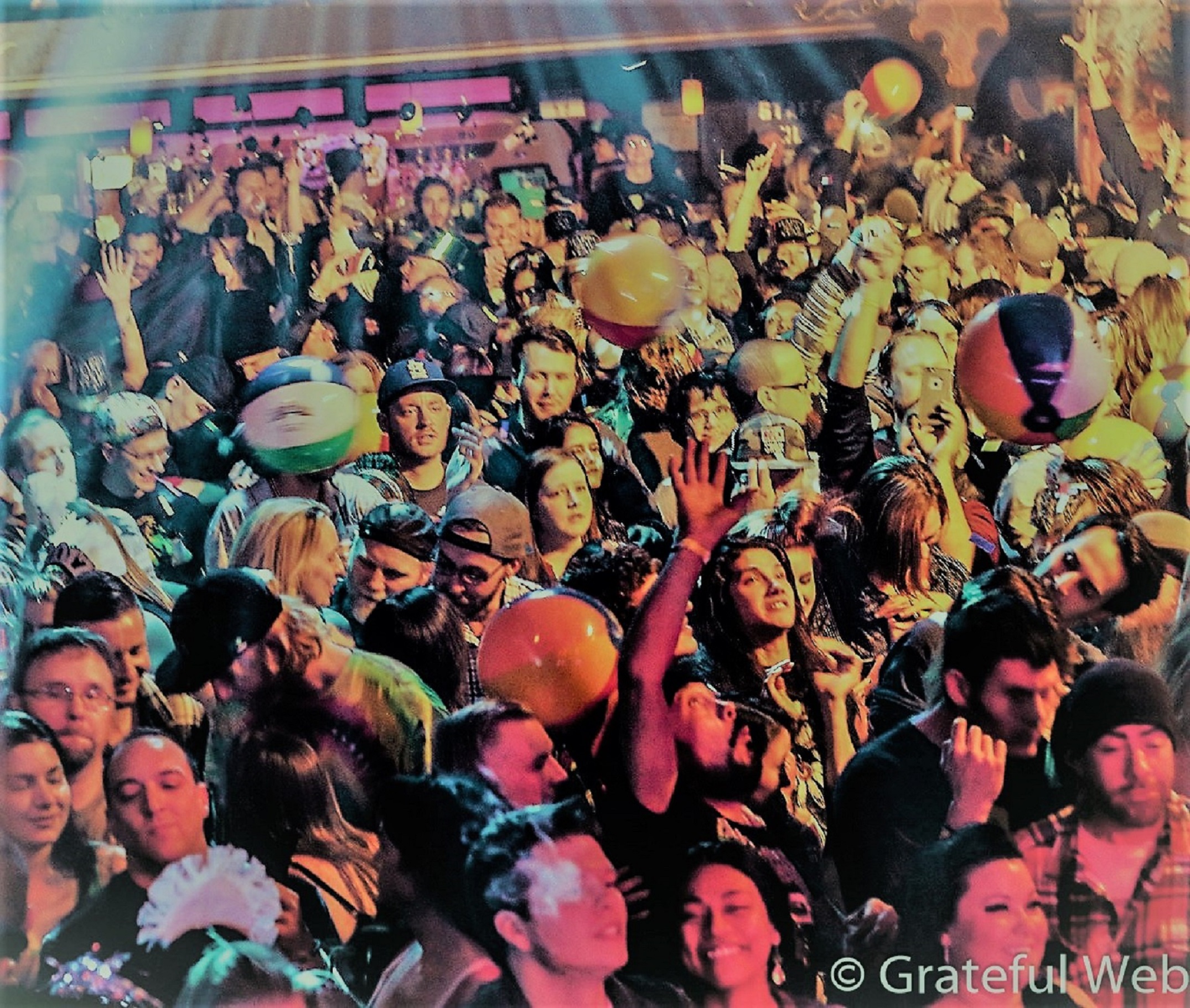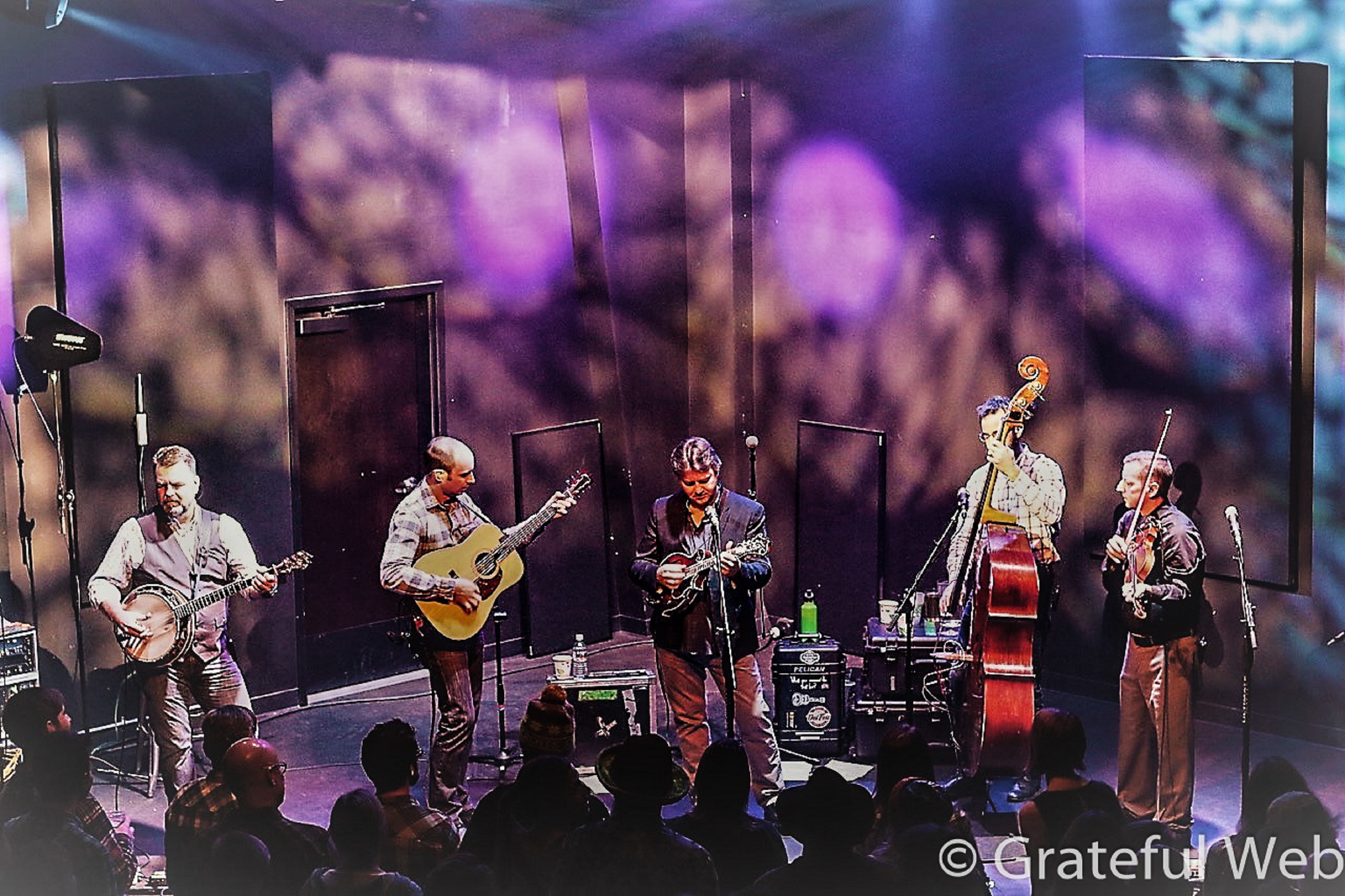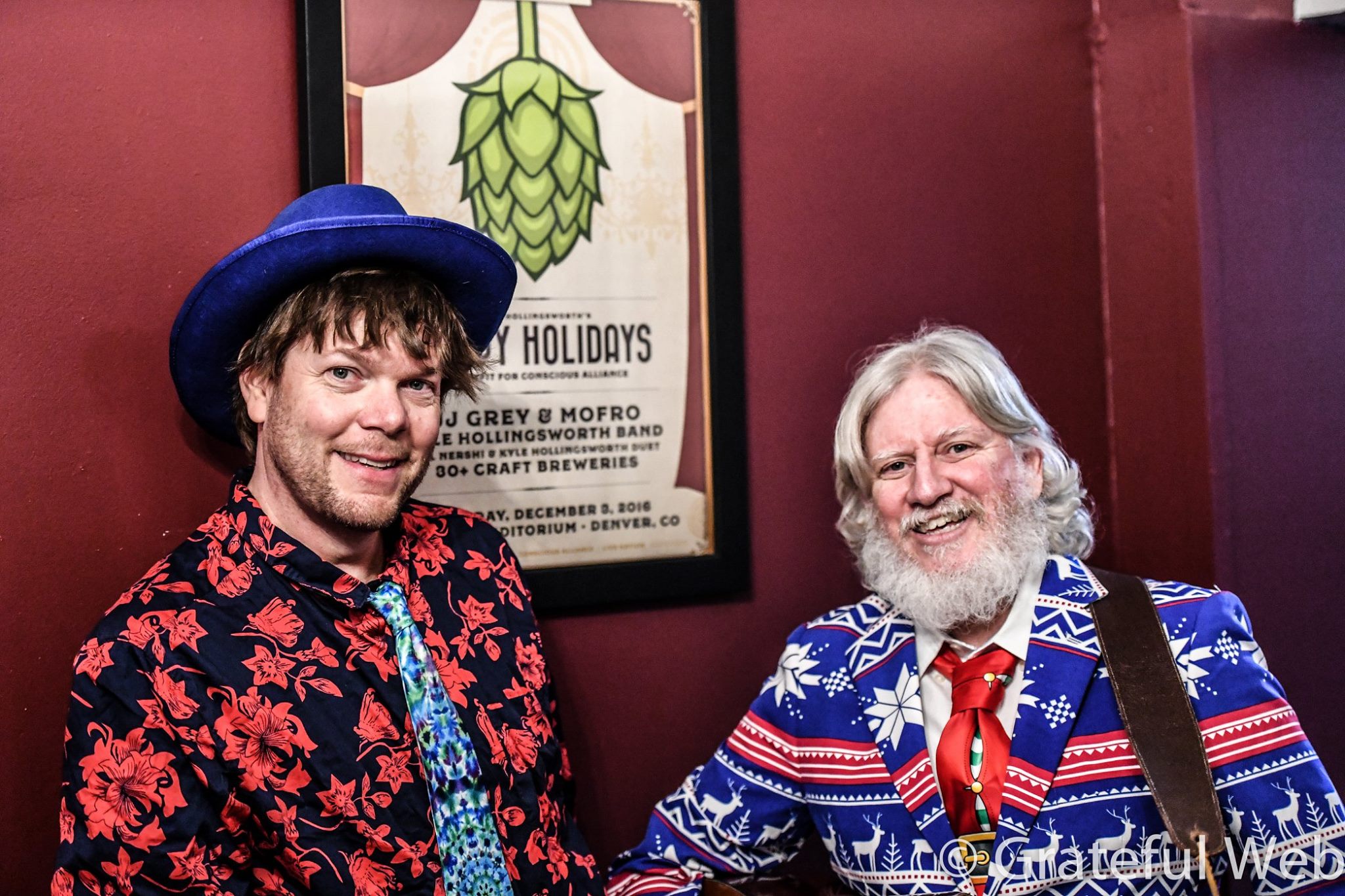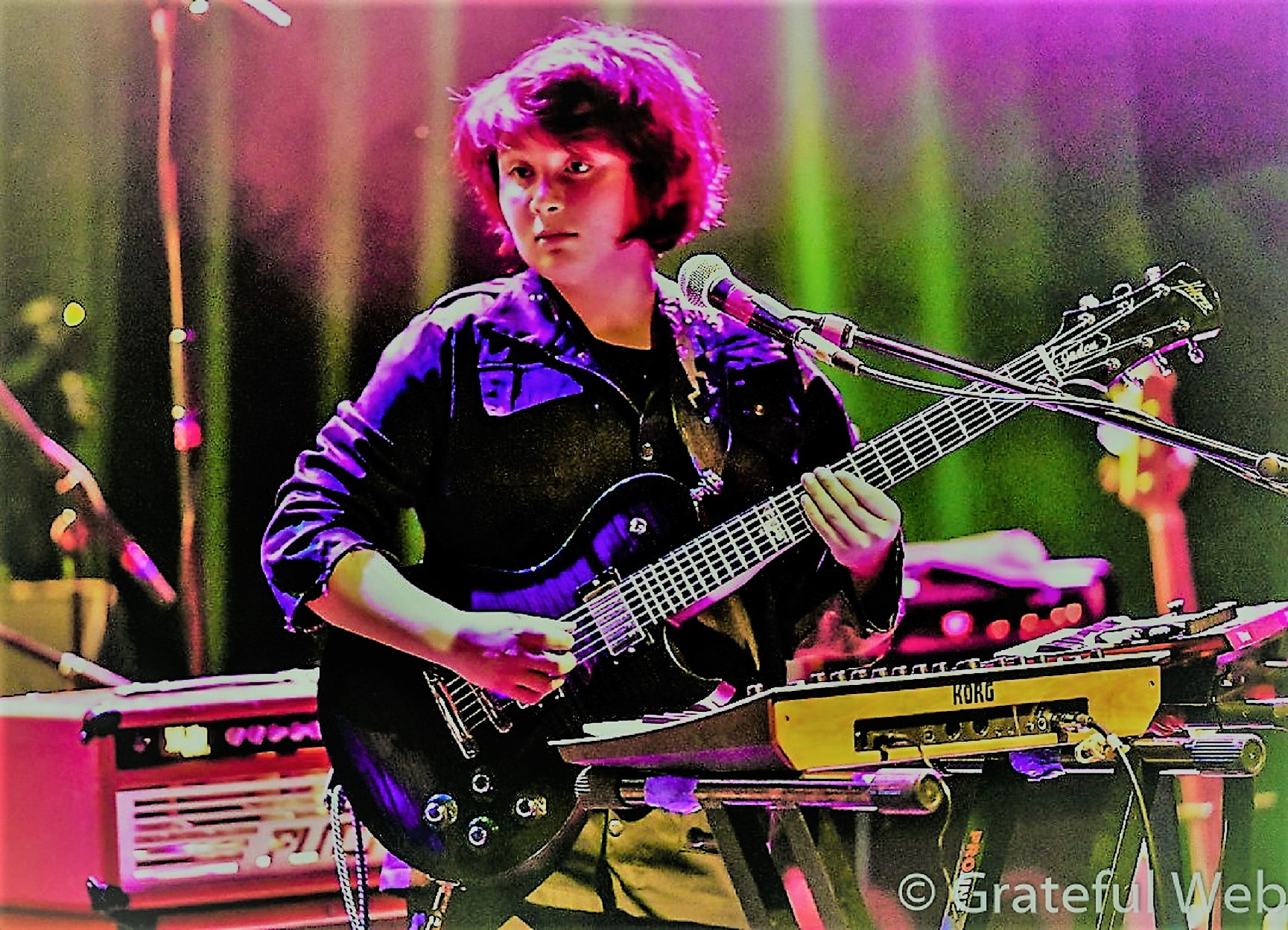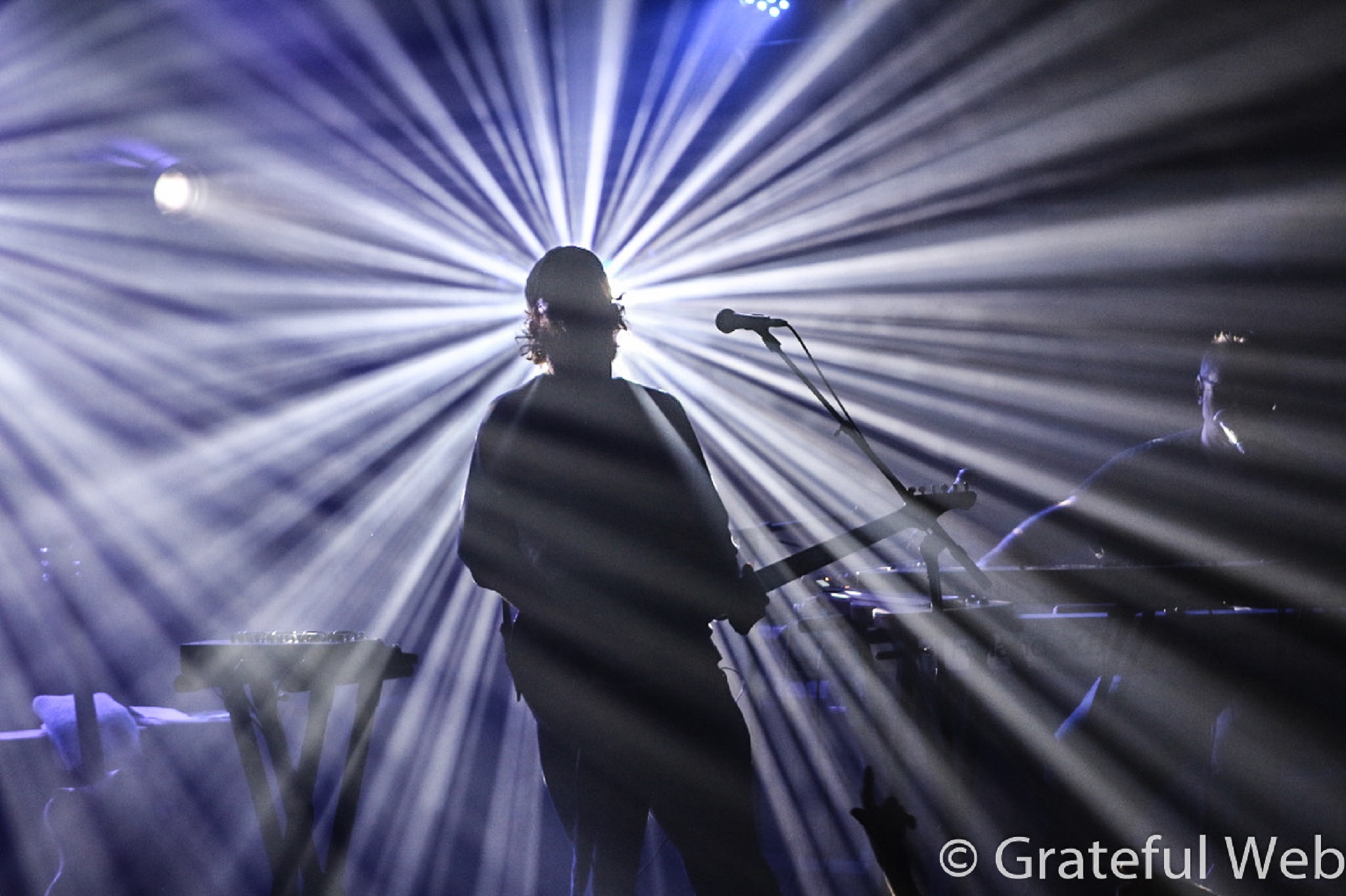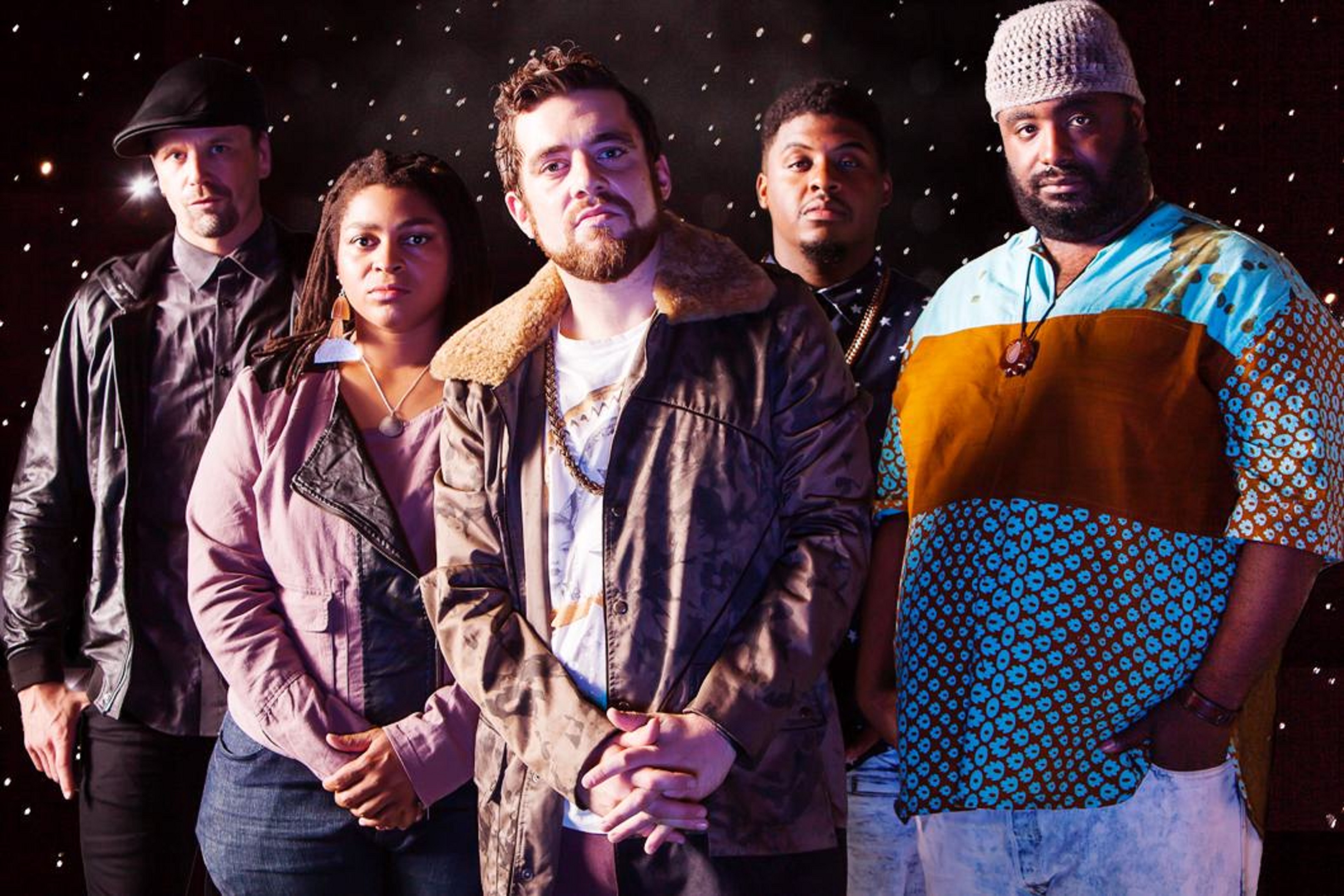Multifaceted instrumentalist and vocalist Nick Dunbar of Boulder County’s Mountain Standard Time lives and breathes the band on the run mentality. Knowing full well how the music industry is experiencing Kickstarter campaigns and grueling tours to make up for a lack of album sales, Dunbar and the band is striving to stay afloat and find that working balance. Fresh off of a fan-funded studio in which to record, Mountain Standard Time is hitting the Colorado Front Range this weekend with shows in Ft. Collins, Denver and Boulder for their annual run of local Mardi Grass shows. Always disciples of the “free-grass” mentality, MST is homegrown Colorado at its finest. With Dunbar one half of the tandem songwriting duo churning out high altitude stompers, the potential is always there for sustained growth, but as he said himself, it’s the “balance that we strive for and rarely seem to achieve,” that molds the future of a band.
GW: Hey, my name is John Schumm and I’m here with Nick Dunbar, who plays mandolin, sings and writes for Mountain Standard Time (MST).
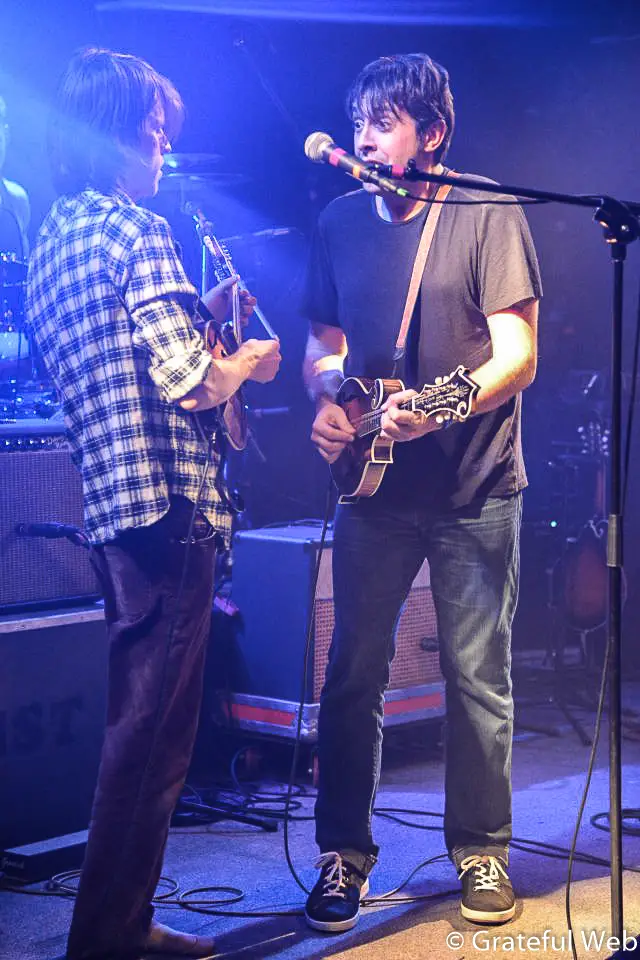
NB: You got it! In the flesh (laughter)
GW: How are you today, what are you doing?
NB: I’m good. I’ve been running around like a mad man. We’re going out on the road for the weekend and I’ve got a lot going on right now, so trying to get back to that balance that we strive for and rarely seem to achieve (laughter).
GW: Always the conundrum. Even on tour, and on days off from tour, there are no real days off, huh?
ND: Oh no, you’re either practicing, or working in the kitchen, or manual laboring or doing advances for the band. Whatever it is, there’s just no sleep for the weary.
GW: No, never. So like you said, you guys are on tour right now. And you’re playing Durango tomorrow, I believe.
ND: Yep, Durango tomorrow and Telluride Friday.
GW: Then down into New Mexico…
ND: Yeah, we are kind of doing a weekend tour. It’s nice to just take off, come back, deal with it and do our thing for the week. And then go back out and play on Thursday, Friday and Saturday where everybody is out ready to rock and roll.
GW: Oh hell yeah, weekend warrior status. I love it.
ND: Amen. We’ve been grunging out all week to go get loose on the weekend. Thank god for that.
GW: (Laughter). So how have the shows been so far?
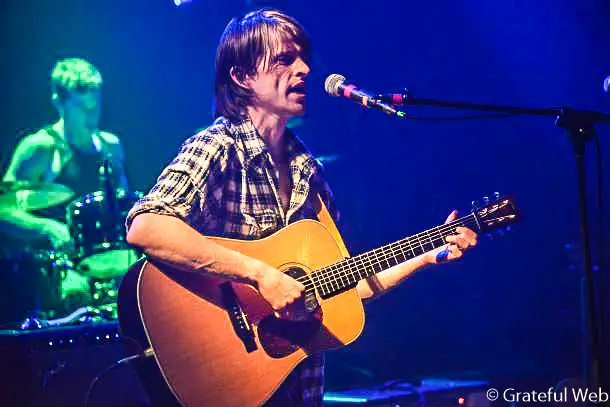
ND: Shows have been great. We’ve been on this winter tour. Last week we were in Steamboat, and what was the other place: Steamboat, Winter Park and Frisco. All the shows have been great. We get a lot of love in the mountain towns. Everybody skis hard and likes to party hard, and the energy is usually pretty off the hook.
GW: Nice. Well it doesn’t sound like you guys have had much time to get any skiing in while you’re up there.
ND: No, that’s kind of…everybody is like, ‘oh you’re going to be on the mountain with all the fresh powder,’ and I’m like, dude, we can barely fit in our personal belonging with our gear, much less snowboards and that kind of thing.
GW: People forget it’s a real job (laughter).
ND: Yeah, I do too. It’s a real job (laughter)?
GW: Oh yeah, wait a minute. Well it’s one of the cooler real jobs you can have, I think.
So once you get back from Utah you’ve got a little time before the annual, or semi-annual, Mardi Grass shows, which are…
ND: Oh yeah, our Mardi GRASS shows!
GW: Mardi Grass.
ND: Mardi Grass. We do it every year.
GW: That’s right. I remember, well I don’t really remember what year it was, but 2008 or 2009 might have been the last one I made it too. Maybe 2010, I’m not really sure anymore.
ND: Well we’ve got to get you out there.
GW: I know, I know. I’m actually going to be out of town, so the stars just aren’t aligning right now.
ND: Oh no. Well someday, brother John.
GW: It’ll happen. So you guys are at the Aggie, The Bluebird and then heading up to The Fox from the twelfth to thirteenth of February. How many of these Mardi Grass shows, or runs, have we gotten to at this point?
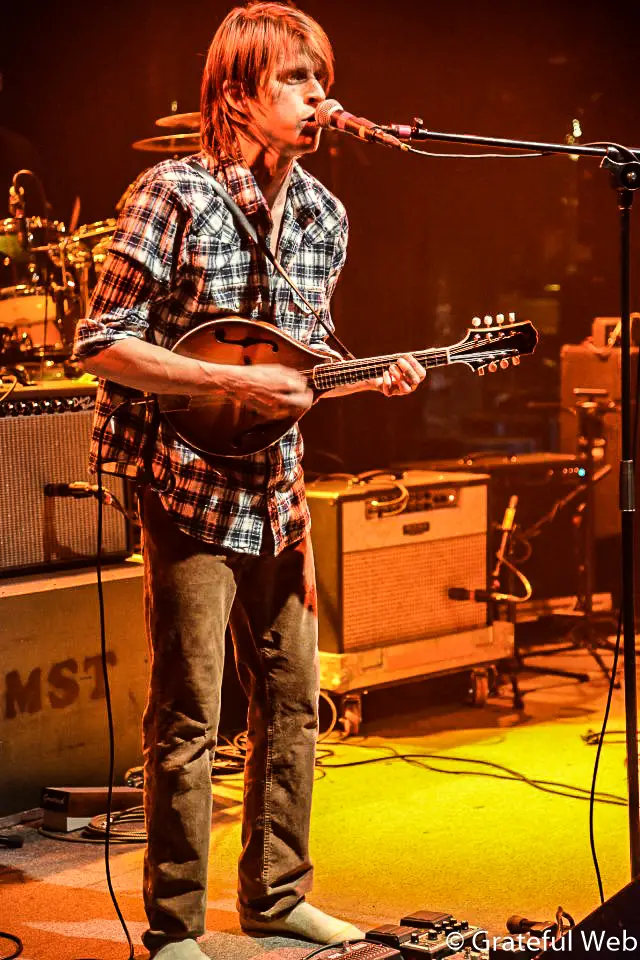 ND: I think we’ve done three, maybe four. The first year we did with John Skehan and Sheaffer from Railroad Earth. Then we did one with Jeff Austin, one with Tim Carbone. I think this is number four.
ND: I think we’ve done three, maybe four. The first year we did with John Skehan and Sheaffer from Railroad Earth. Then we did one with Jeff Austin, one with Tim Carbone. I think this is number four.
GW: A nice little tradition.
ND: (Laughter) No doubt. It’s a great to do Mardi Grass. It’s a huge thing. We do our bluegrass-white boy version of it.
GW: (Laughter). That’ll be a nice warm up before heading back into the mountains for the WinterWonderGrass Festival, which has a pretty cool lineup.\
ND: That festival is going to be cool. This is kind of “The Road to WinterWonderGrass,” this Winter Tour. We’re hyping people up about WWG and we’re really excited to be on that festival this year with so many great bands. And we heard the energy is off the hook, so we’re pretty excited.
GW: It should be a really good time; you guys have all sorts of good stuff coming up.
Shifting away from the road, you guys released you last album, “Highway Lines,” in October. I’ve been listening to it the past couple of weeks and I’m really enjoying what I’ve heard. It’s a solid step forward from the last EP, “Sunny.” When did Otis (Lande) and Ryan (Ebarb) join the band? Was that 2012?
ND: Yeah, right before we hit “Sunny.” So they’re on “Sunny,” but they were pretty fresh in the band. We were still working out the kinks and now are feeling a lot more comfortable with each other; getting out there and really starting to sound like a band.
GW: What led to bringing those guys into the band?
ND: Mostly touring and musical direction. We had a group that was a little different before. We had banjo and sax, and we love those guys, they’re phenomenal players. One had kids and a lot of responsibilities. It wasn’t really working out where we could get out on the road as much as we needed to be without destroying someone’s life, because they’re out on the road trying to balance finances, trying to balance family, trying to balance owning a property and all that stuff. Those guys still come sit in and are still buddies of the band, but we decided to take it in a little bit of a different direction. We’ve always had kind of that grassy edge, but now we have a bit more of an edge, a more progressive sound. Having a keyboard player, and bringing on someone like Otis really brings a lot more versatility. The music industry is pretty tough these days, and we want to be able to play Lyons Folk Fest, and then go play Bonnaroo at four in the morning and really have that versatility to appeal to the most wide array of audiences we can.
GW: Makes Sense. It definitely sounds like everything is starting to gel, and you guys are picking up some more momentum, which is good to see.
ND: Otis and Ryan are just monsters. I mean both of those guys. It’s pretty insane. (Laughter) I’m a hack, so just to be surrounded by these amazing musicians makes me feel very blessed. It’s so riveting to bring in a tune that I sit at home and write on the guitar for my cats and dogs in front of the fire. And maybe my lady will listen to it, probably not though. And then you bring it in to these guys and it just transforms into this beast. It’s like, ‘well let’s try this tune, I think it’s cool, I think it’s catchy. It’s got some parts.’ And then everybody starts putting in their creative input and starts adding to the painting and all of the sudden it’s like, ‘damn, this is a pretty tight sounding tune.’ It’s really nice. You sit there and write tunes and cord progressions and you get to these points where you’re like, ‘that song kicks butt, I love that song.’ And you bring it to the band and they’re like, ‘yeah, we’re not that into it.’ And sometimes you bring a song you’re not too sure about and the band goes, ‘oh, well let’s try this and let’s put this in and here’s this, let’s do this,’ and this song that I didn’t feel too confident about transformed into a great tune.
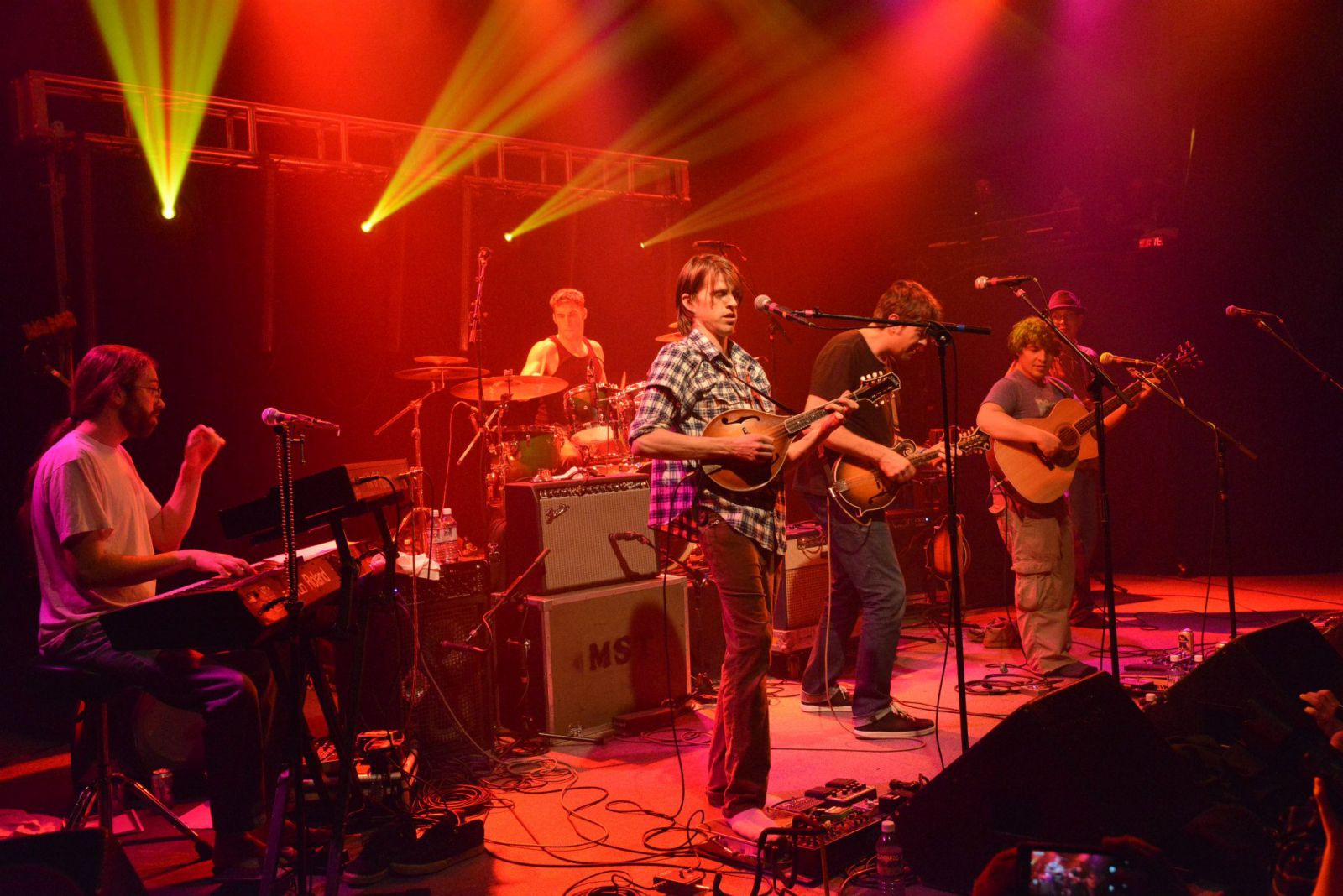
GW: It’s cool seeing how that collective process works out. I was actually going to ask you about what leads to you writing a song. I’ve noticed that on the album, Stanton (Sutton) and yourself are credited with writing all of the songs. So when you say you bring a song in to the band, how would it differ from a track that Stanton brings in? What would you say is the difference in what you bring to the table, as far as crafting a song lyrically and instrumentally?
ND: I think that we’ve played together for so long that we’re kind of like a two-headed monster, in the bad, evil monster kind of way. Not the awesome monster kind of way. And I think our songs compliment each other really well; I think we push each other. He’ll bring something that’s totally crazy and mixed-metered with all of these awesome guitar parts; really cool tunes. And then I’ll come in with a four chord tune that’s super catchy, and the whole bands’ into it immediately and it’s ready to go, sounds great, and vice versa. Then he’ll add this sweet lullaby and straight-ahead bluegrass tune while I come in with a progged out tune. I feel like you can definitely tell which tune is whose kind of by the way we deliver them vocally, and obviously whose singing lead, but in terms of an overall sound, our tunes compliment each other really well. He’s definitely inspired me, and I would hope that he would say the same thing about me. I’m sure he does in terms of writing material.
Another thing about our band is the “free grass,” so I don’t really write for our band, I just write. I’m not one of those guys that says, ‘hey, I wrote this song, we need to play it.’ I don’t ever want to force something down the bands’ throats. I play lots of different music with lots of people. I have a straight-ahead bluegrass band that plays a ton of my bluegrass stuff that MST has never touched. I want to bring the material that’s best for the band, and granted Stanton and I are credited with writing them, but it’s such a collaborative process, whether we like it or not. That’s what I love about this band. You can just get so stagnate hearing things one way and it’s hard to get out of your creative box and let it go and just be like, ok, hey, I did great, here’s eighty percent of a song with most of the hard parts finished: getting the lyrics, getting the hook, getting the cord progressions to some fresh ears that are ready to just take it to the next level and not have creative attachment to it or any personal or emotional attachment, whatever the taste may be, as us songwriters usually have. And I think one thing that separates Mountain Standard is that there are a lot of bands that write tunes and say, ‘this is how you play it.’ And we’re not really like that. We have such a creative process, and such stellar musicians that I would be a fool to be that rigid when it comes to bringing in new material. We’re constantly re-working things, and if it sounds good, we like it, but if a sections sounds kind of weird we’ll go back. I’ve taken out verses, I’ve taken out bridges, and I’ve added bridges. So we really just try to listen to our crowd, listen to our people and write the songs that are going to have the most impact.
GW: It’s like you said, once you bring it in and the band gets playing on it, it only goes to make it more of the bands’ song, and I think that’s a good take on how interchangeable your songs are; how they both fit and you wouldn’t necessarily know if it was written by you or Stanton. “Simple Summer Night” and “Darkness” have more of a Stanton feel and then something like the title track, which you wrote, has a similar feel, though it’s an eight minute track and extends a little bit, but it all molds together.
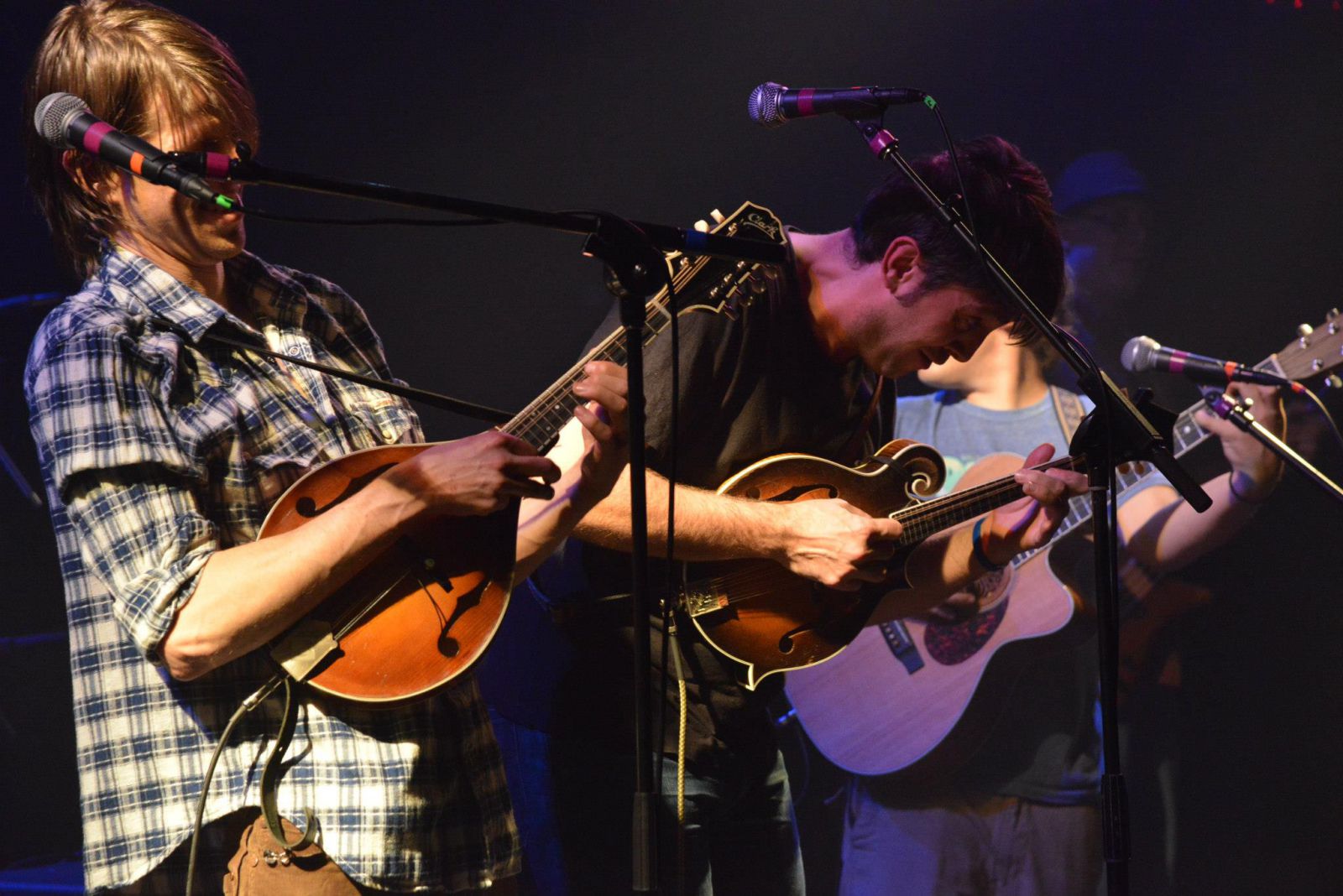
ND: Yeah, and you listen to the “Sunny” album, and I have more of this straight ahead stuff, ballads and bluegrass stuff, and he (Stanton) has more of the progressive stuff. We both have a huge catalogue of music and we’re kind of at the mercy of our band members. We had like fifteen tracks that we had started tracking when we did that and it’s just so interesting to think that it could have been a completely different album. I don’t know if you know but we Kickstarted an album…excuse me, sorry, this person just tried to drive into me. I’m driving down to Denver…
(Collecting his thoughts)…We actually Kickstarted for a studio and recorded that album at our own home studio. That was the first album we did after the Kickstarter. So we got a bunch of tunes and we were on a bit of a time crunch because we had to get all the gear and learn how to use it, and get stuff out to our donors. So we came in with a bunch of tunes and really just tried to focus on the stuff that was coming out naturally in the studio quickly, unfortunately. That was kind of a kick in the face. But we’re super proud of it and it’s pretty amazing to have an idea: ‘hey, we want to Kickstart an album because we don’t want to spend twenty grand only to download an album and have it be obsolete in six months.
The way social media works these days, people need to be saturated with media. You see these kids checking their Facebook and Instagram, pulling down the little thing to update and waiting for the next thing to look at. Most of the time they don’t even look at it. They like the article but they don’t read it, you know what I mean? I’m guilty of it too; I’m totally guilty of it too. But people need content, they are expecting content, whether they look at it, use it, download it…all of our music is downloadable for free; anybody can download it anytime they want. And we still don’t get a ton of people downloading our music. I mean we do, but you’d think we would do more giving it for free. I mean it’s easy. You go on Bandcamp, you press download and it’s on your phone or whatever it is. So we’re kind of striving to find that balance, and we don’t want to put our buddies out of business at the record shop but we also have to accommodate how society works and how society deals with media and music and follows bands. It’s a lot to keep up with. The most important person on the team these days is the media manager, the one there making you look pro: getting pictures out to people and getting content out to people involved and getting them to participate in it. I mean that’s an art in itself.
GW: It’s a wild world, a wild industry we live in these days.
ND: Every business, whether it’s real estate or whatever, is so driven by social media. It’s crazy, it completely blows me away, but you know, what is it, you can’t beat them, join them, is that how it goes?
GW: Something like that, I think. If you can’t join them, beat them? I’m not sure.
ND: (laughter) That hasn’t worked so far, so I’m going to reverse it.
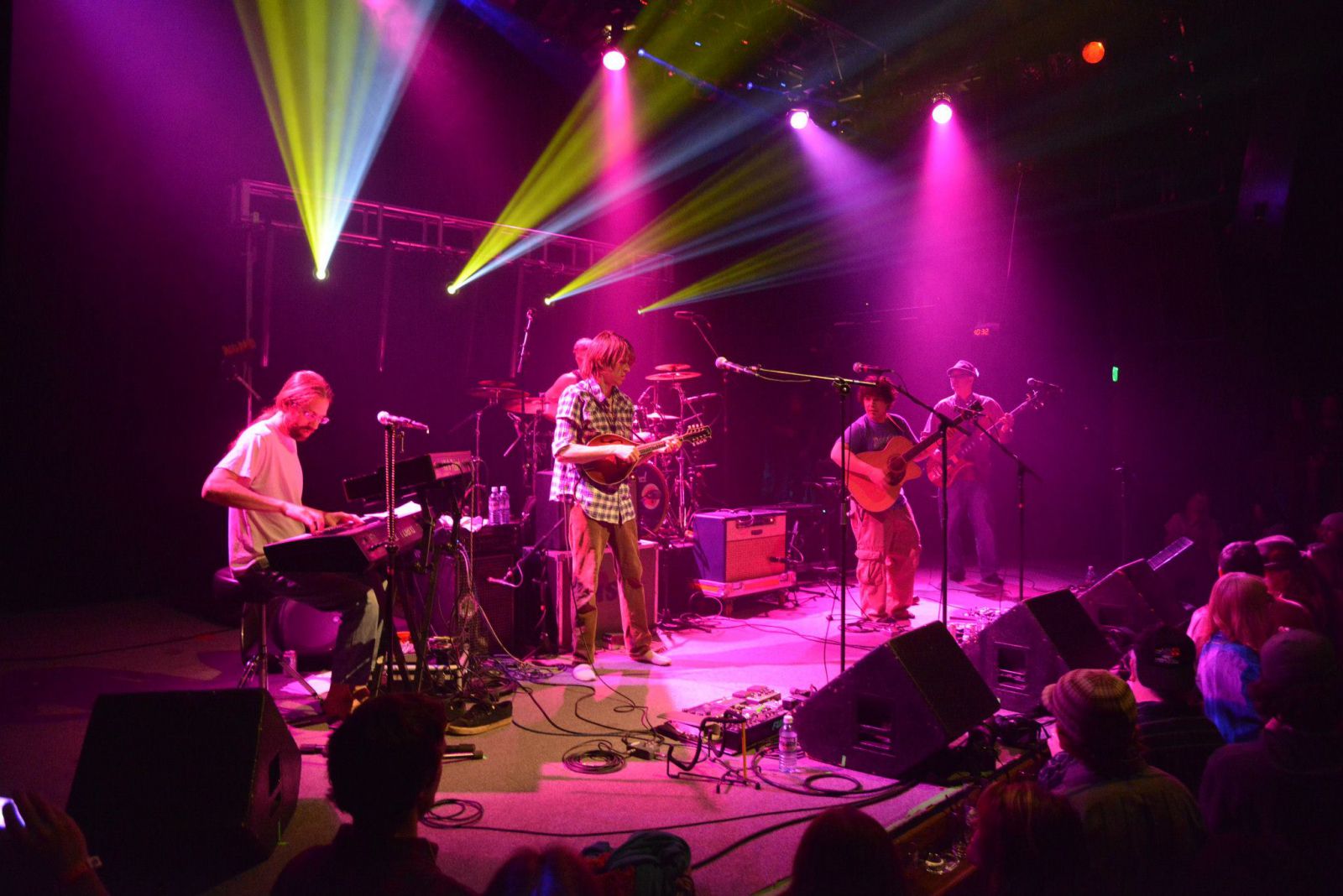
GW: Well, we’re going to reverse it then. So I don’t know if there’s anything else coming up you wanted to let us in on, or if the band has any plans to play any festivals this summer?
ND: Nothing that we can let out of the bag at the moment. We’re definitely going to take some time to focus on putting out more recordings and getting out on the road. Maybe not quite as crazy as we were before, but trying to find that balance, work a little bit more from home. We’re really excited about Mardi Grass this year. We have a ton of local talent: Caribou Mountain Collective, Railsplitters, Monocle. It’s just such a family thing to come home to the Fox and the Bluebird and the Aggie and do our little three night run. We’ve got all sorts of fun stuff planned, we just hope to see everybody out, and give them the love.
GW: Well hopefully you guys wrangle them in there.
ND: Yeah we appreciate you guys taking the time. Grateful Web is killing it. You guys are some of the few articles I actually read. I know Dylan from a long time ago, and you guys have a good family vibe. You’re the type of people we want to work with.
GW: Hell yeah. Well we appreciate that and what you guys are doing. Keep on doing it.
ND: Amen brother, amen.





